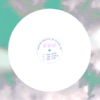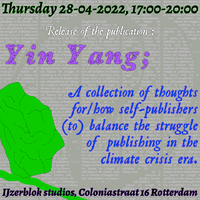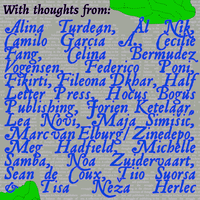User:Flo/Final presentation
Year 1
Special Issues
✶✶✶ 13: WOR(L)DS FOR THE FUTURE
An in depth overview on Issue 13 can be seen here.
✶✶✶ 14: I Don't Know Where We're Going, But...
An in depth overview on Issue 14 can be seen here.
Setting up a local hotspot
Together with Federico and Camilo we worked as the technical team on setting up the hotspots with RPI's.
Guestbooks
For issue 15 I've created a digital guestbook for every hotspot(5).
✶✶✶ 15: Radio Implicancies
An in depth overview on Issue 15 can be seen here.
For the cookbook broadcast a PDF was made. For this I made this page, showing different ways of materialising websites by calculating your carbon footprint in websites, who is the host and showing where the hosting server is located.
Annotating in HTML & CSS
In the second issue I started to combine annotations together with the use of HTML & CSS. This playful way of blogging process simultaneously trained basic skills of website making.
After tryouts with real life echo under a bridge & in a staircase, images to sound via Audacity and AI algorithms I've created three tracks. 1: Melodic song with SonicPi, using loops that looped in a different speed. 2: A satirical meditation soundscape with references to daily life encounters with "The Cloud" and another meditational audio piece referring to resources in computing and the periodic table of elements.
The research on "The Cloud" & elements in computing touched upon my interest in environmental issues. Amidst multi pandemics when studying partly resulted in an ever growing daily screentime. My daily encounter with computers for designing and communication made me question the hidden materiality of computing.
List of logs
Simple websites created to log research:
Sonic Pi Meditative audio about The Cloud
Year 2
Thesis: Understanding the materiality and the invisible environmental impact of self-publishing
Open Call
Release
Sobremesa
Wider syntax
Languages
When starting XPUB I was aware of the coding aspect inside the curriculum, however when we learned things such as creating a PDF through Python, flask and other non visual tools inside programming I questioned the possibilities for my own practice. Honestly, it took a while when I started understanding the use and possibilities of these tools. After trying out with various languages in coding, the search for a snippet of code became easier. Delving fora from sometimes 10 years a go helped me a lot in creating all the tryout websites and the guestbooks. Slowly starting to understand how different languages speak and speak together.
Languages encountered
HTML, CSS, Javascript, Python, PHP, API, Flask, Terminal, Lua (TIC80) & Twine.
Sharing
Understanding Open Source principles
During my bachelors study, where the only lessons we had were in Indesign & Photoshop, creating a monopoly in design in comparison to the tools we learned during XPUB made me think about the big influences in the way how we use tools of designing itself. The hegemony of Adobe and other big corporations in the (design) world is worrisome if you think about understanding the tools we use and will develop in the future. If everything is standardized, how much creativity is left? Looking under the fixed parameters of certain programs made me aware of the possibilities in sharing codes, opening up the conversations on ownership. Knowing how things work is vital to create new structures if necessary.
PZI Archipelago
When I noticed a job opening for this student led collective I applied rapidly. Studying at an art academy to me is partly the study itself and partly the connections being made throughout fellow students. The lack of intertwined relations between all masters courses was a drive for me to join Archipelago.
The Piet
To create a bigger understanding on what is happening at al masters courses developed in the idea to create a physical Newspaper. At the moment we are busy creating the 4th issue!
Leaving traces
Guestbooks, interaction, stratum, communication




